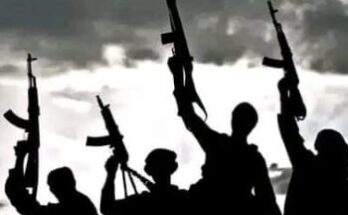BODE OLAGOKE, who went round the Federal Capital Territory (FCT) on Sallah day, reports on its unusual nature
The day was bright as expected. The fasting had ended on Saturday, and Sallah was on Sunday. However, the sort of festivity associated with Sallah was absent.
Obviously, that was because residents were afraid of going into the markets to shop, going to prayer grounds, recreational centers, and even Christians who were expected at their various churches remained indoors on the day.
A number of residents who spoke to Blueprint said their fear was caused by the bomb attacks that the nation’s capital witnessed recently.
Against the backdrop of the attacks, before the Sallah day, all forms of government and private security personnel were deployed to the city to secure its nooks and crannies.
For Nigerian Police Force, the Inspector General, Mohammed Abubakar, directed all Zonal Assistant Inspectors-General of Police and Command Commissioners of Police to ensure increased security surveillance, patrols and tactical police presence on major highways, places of worship, recreation parks and other sensitive, strategic and vulnerable places within their areas of responsibility during Sallah.
He directed commissioners of Police in every state to adequately deploy their personnel to guarantee free-flow of traffic and safe passage for travelers and other road users. Highway patrol teams, working in conjunction with other law enforcement agencies, were directed to take adequate measures in preventing road accidents and rendering assistance to travelers particularly those in distress.
FCT, in addition, was also strictly monitored by the Army who identified hot spots such as markets, recreation centres, worship centres and hotels and compelled them to comply with counter-Improvised Explosive Devices (IEDs) measures or shut down.
After the Banex Plaza bombing, which claimed more than 20 lives, security agencies in the FCT directed business centres, plazas, markets and a host of other public places to put in place counter-terror measures.
The Director of Army Public Relations, Brigadier-General Olajide Laleye, said: “The Nigerian Army conducted a vulnerability survey of the Federal Capital Territory and asked certain high risk spots to embrace a series of counter-IED measures.”
The FCT commandant, Nigerian Security and Civil Defence Corps (NSCDC), Mr. Aminu Abdullahi Kofar-Soro, had told Blueprint in an exclusive interview, that he deployed over 7,000 men, including himself, to every part of the city to ensure peaceful celebration.
Checks also revealed that tight security was provided by security operatives drawn from the Federal Road Safety Corps (FRSC) and Vehicle Inspection Officers (VIO), amongst others.
When our correspondent visited some of these places, owing to the heavy presence of security operatives, the city recorded few human and vehicular movements, as many stayed in doors throughout the day.
A resident, Dantani Kingsley, in a chat after observing a prayer session in the morning, said that many Muslim faithful decided to return home and remain indoors instead of moving around to visit friends and families as people do on Sallah day.
However, Mr. Jimoh Oladele, who brought two of his kids to Wonderland amusement park, attributed the low key celebration to the recent happenings in Abuja, saying the double explosions in less than a month as enough warning for people to trade carefully.
At Garki International market, the story was not different. A trader in the market, Mrs Ojuolape, said the market was tightly secured with security officers “all and around the market.”
Ojuolape, who also said the low patronage during the Sallah on the fear of bombs, added that there was anxiety amongst Abuja residents and “since no one knows when and where the terrorists would strike next, the best option is to tread with caution”.
The heavy presence of security operatives, however, paid off as Blueprint observed a peaceful celebration in and around the territory.



